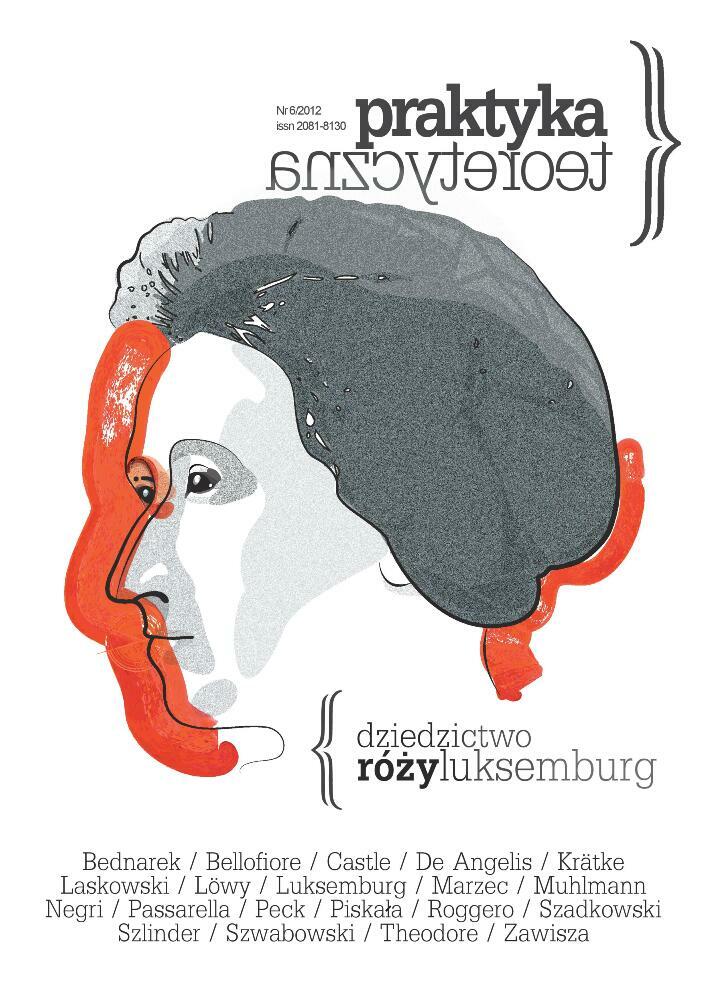Abstract
This article is a presentation of Hannah Arendt’s doctoral thesis published
in 1929 and devoted to the notion of love in Augustine (Der Liebesbegriff bei
Augustin). Its aim is to demonstrate the originality of Arendt’s work towards her
major influence and object of criticism – the philosophy of Martin Heidegger. Her
concept of natality, derived from Augustinian thought, opposes to being-towards-
-death. This movement makes a different conception of subjectivity possible: Heideggerian
egocentrism can be substituted by a plurality. Vitalism (as proposed by Agata
Bielik-Robson) is noticeable in the interpretational efforts of Arendt and defends
a particular subjectivity against dissolution of any kind into Wholeness. Simultaneously,
a vision of a community is formed – the community of equals constructed
thanks to the recognition of contingency in conditio humana. In other words, her
argument overcomes claims to absolute freedom. Reflections from the “pretheological
sphere” (Arendt) take the form of philosophical anthropology, crucial to subsequent
Arendtian thought. Speculations concerning a notion of God are linked
with the dissimilar approaches to a neighbor’s love. This is reflected in the problem
of the constitution of dependent subjectivity, the main feature of which is a dialectically
understood gratitude: the recognition of one’s dependence is a first step to
overcoming it. It corresponds with a complicated attitude towards modernity far
from simple resolutions: a sense of historicity builds a strategic position as a condition
of successful emancipation.
References
Adler L. 2008. Śladami Hannah Arendt. Warszawa: Twój Styl.
Arendt H. 1929. Der Liebesbegriff bei Augustin: Versuch einer philosophischen Interpretation. Berlin: Philo Fine Arts.
Arendt H. 1974. Rahel Varnhagen: the Life of a Jewish Woman. New York: Harvest Books.
Arendt H. 1994. Między czasem minionym a przyszłym: osiem ćwiczeń z myśli politycznej. Warszawa: Fundacja Altetheia.
Arendt H. 1996. Love and Saint Augustine. Chicago: University Of Chicago Press.
Arendt H. 1996. Wola. Warszawa: Czytelnik.
Arendt H. 1999. O przemocy: nieposłuszeństwo obywatelskie. Warszawa: Fundacja Aletheia.
Arendt H. 2000. Kondycja ludzka. Warszawa: Fundacja Aletheia.
Arendt H. 2006. Odpowiedzialność i władza sądzenia. Warszawa: Prószyński i S-ka.
Armenteros C. 1999. „Hannah Arendt. Rahel Varnhagen and the Beginnings of Arendtian Political Philosophy”. The Journal of Jewish Thought and Philosophy 8 (1) : 81-118 .
Benhabib S. 1996. „Identity. Perspective and Narrative in Hannah Arendt’s Eichmann in Jerusalem”. History and Memory 8 (2): 35–59.
Benhabib S. 1996. The Reluctant Modernism of Hannah Arendt. Thousand Oaks: Rowman & Littlefield Publishers.
Bielik-Robson A. 2008. „Na pustyni”: kryptoteologie późnej nowoczesności. Kraków: Universitas.
Bielik-Robson A. 2008. Romantyzm: niedokończony projekt. Eseje. Kraków: Universitas.
Bloom. H. 2002. Lęk przed wpływem: teoria poezji. Kraków: Universitas.
Blumenberg H. 1979. Arbeit am Mythos. Frankfurt am Main.
Blumenberg H. 2007. C. Schmitt. Briefwechsel 1971-1978 und weitere Materialien. Frankfurt am Main.
Canovan M. 1994. Hannah Arendt: a Reinterpretation of Her Political Thought. Cambridge: Cambridge University Press.
Curthoys N. 2011. „Hannah Arendt: a Question of Character”. New Formations 71 : 58-78.
Heller W. 2000. Hannah Arendt: źródła pluralizmu politycznego. Poznań: Wydawnictwo Naukowe Instytutu Filozofii Uniwersytetu Adama Mickiewicza.
Hohendahl P. 2008. „Political Theology Revisited: Carl Schmitt’s Postwar Reassessment”. Konturen 1.
Ifergan P. 2010. „Cutting to the Chase: Carl Schmitt and Hans Blumenberg on Political Theology and Secularization”. New German Critique: 37 (3) : 149–171.
Kristeva J. 2007. Hannah Arendt: biografia. Warszawa: Wydawnictwo KR.
Platon. 2005. Dialogi. t. 1. Kęty
Vecchiarelli J. 2002. „Hannah Arendt Twenty Years Later: a German Jewess in the Age of Totalitarianism”. New German Critique 86 : 19–42 .
Wiese Ch. 2011. „Bez miłości do narodu żydowskiego?”. Przegląd Polityczny 109/110.
License
“Theoretical Practice” seeks to put into practice the idea of open access to knowledge and broadening the domain of the commons. It serves the development of science, thinking and critical reflection. The journal is published in open-access mode under the CC-BY-NC-SA 4.0 license (detail available here: http://creativecommons.org/licenses/by-nc-sa/4.0/). Articles published in the journal may be freely distributed, stored, printed and utilized for academic and teaching purposes without restrictions.
They should not be, however, used for any commercial purposes or be reconstructed into derivative creations. Access to the journal may not be limited or offered for a fee by any third party.
Prospective authors are obliged to fill in, sign and send back the publishing contract compliant with the CC licencing. [PL.pdf, PL.doc, EN.pdf,EN.doc].
According to this contract, authors grant the journal a non-exclusive right to publish their work under the creative commons license (CC-BY-NC-SA 4.0) without any financial obligation on both sides of the contract.
Before submission authors should make sure that derivative materials they use are not protected by copyright preventing their non-commercial publication. Authors are responsible for any respective copyright violations.
